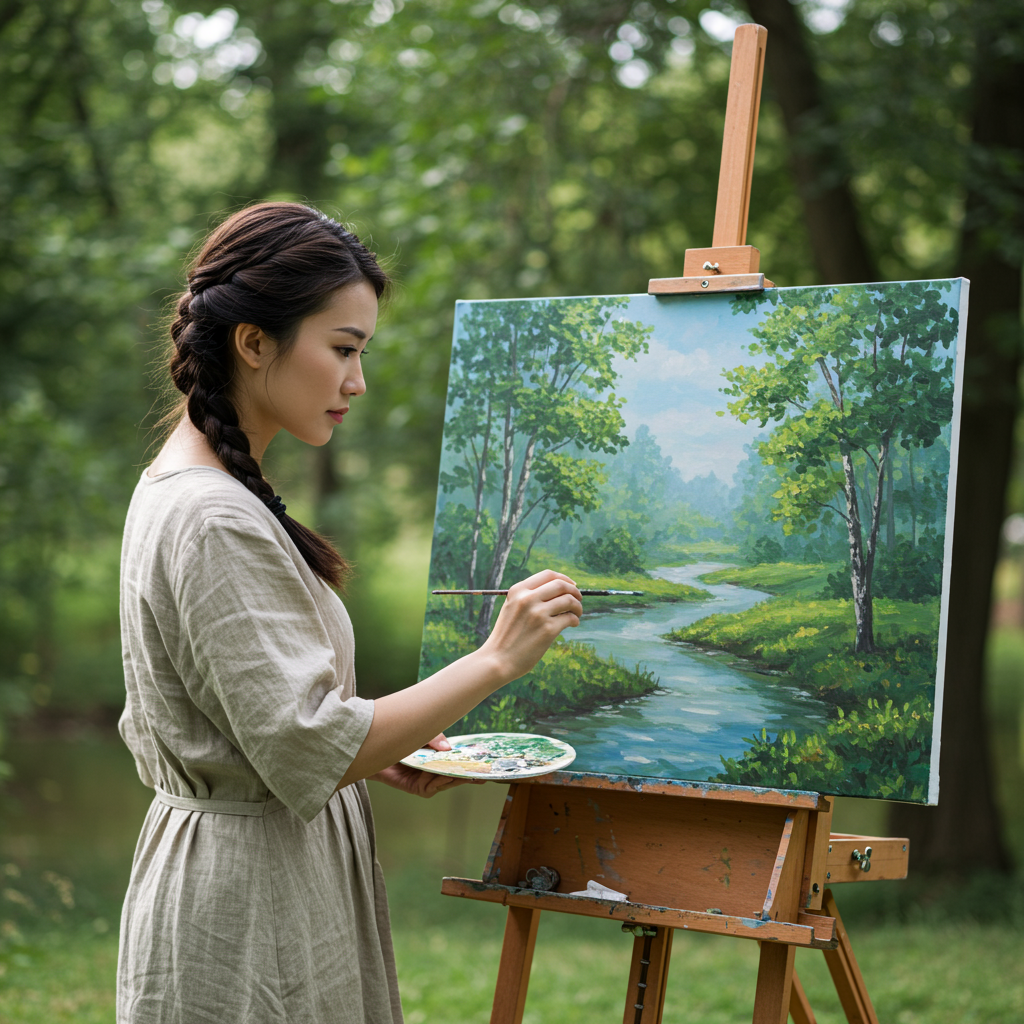
Nature’s Canvas: How the Outdoors Inspires Human Creativity in Art, Music, and Writing
From the rustling leaves of a whispering forest to the crashing waves of a tumultuous ocean, nature has served as an endless wellspring of inspiration for artists, musicians, and writers throughout history. Its intricate tapestry of colors, sounds, and textures ignites our imaginations, sparking creativity in ways that the confines of four walls simply cannot. This connection between the natural world and human creativity is profound, shaping not only the content of our artistic endeavors but also the very process by which we create.
For visual artists, nature provides a breathtaking palette of colors and forms. Consider the Impressionists, who sought to capture the fleeting light and atmosphere of the outdoors, or landscape painters who meticulously render the grandeur of mountains and the serenity of valleys. Even abstract artists often draw inspiration from natural patterns and rhythms, translating the organic flow of nature into dynamic compositions. Nature doesn’t just offer subject matter; it informs the artist’s understanding of light, shadow, and the interplay of elements, enriching their artistic vocabulary.
Music, too, finds its muse in the natural world. Birdsong, the murmur of a stream, the howl of the wind – these sounds have been woven into musical compositions for centuries, evoking a visceral connection to the environment. Think of Vivaldi’s “Four Seasons,” which masterfully depicts the cyclical changes of nature through evocative melodies, or Debussy’s “La Mer,” which captures the vastness and power of the ocean. Nature’s rhythms and harmonies resonate within us, providing a framework for musical expression.
Writers, perhaps more than any other artists, have long turned to nature for inspiration. From Thoreau’s contemplative reflections on Walden Pond to Wordsworth’s romantic odes to the Lake District, nature provides a rich backdrop for storytelling and philosophical exploration. The natural world offers a wealth of metaphors and symbols, allowing writers to explore complex themes of life, death, and the human condition. The tranquility of a forest can inspire introspection, while the wildness of a storm can ignite the imagination.
But nature’s influence extends beyond mere subject matter. The act of being in nature itself can foster creativity. Studies have shown that spending time outdoors can reduce stress, improve focus, and enhance cognitive function, all of which contribute to a more fertile creative mind. The sensory richness of the natural world engages our senses, stimulating new ideas and perspectives. Whether it’s a hike through the woods, a walk along the beach, or simply sitting beneath a tree, immersing ourselves in nature can unlock our creative potential.
In a world increasingly dominated by technology and urban environments, it’s more important than ever to reconnect with the natural world. By embracing the outdoors, we not only nurture our creativity but also cultivate a deeper appreciation for the beauty and wonder that surrounds us. Nature’s canvas awaits, inviting us to explore its boundless potential and create our own masterpieces.



